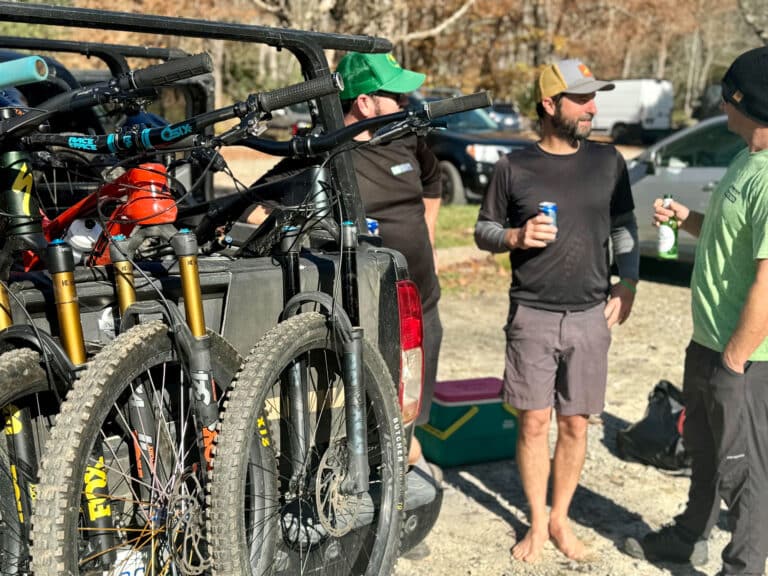Update 2/3/25: According to the U.S. Forest Service of North Carolina, the North Fork Fire has spread to 644 acres and is currently 65% contained. Officials said crews created fire lines to, “fight fire with fire,” using drip torches to burn out fuels in the wildfire’s path. This technique causes the wildfire to die out as it approaches the manmade fire lines.
The agency also confirmed that fire activity decreased over the weekend, but intense heat is still present in the center of the fire where there are heavy damages from Hurricane Helene. The cause of the North Fork Fire is still under investigation.
Update 2/1/25: The U.S. Forest Service of North Carolina’s latest update says that the North Fork Fire is currently 40% contained and has spread to 350 acres. According to officials, fire crews are creating fire lines that will, “fight fire with fire,” by using drip torches to burn out fuels in the wildfire’s path. This technique will encourage the wildfire to die out as it approaches the manmade fire lines. The cause of the North Fork Fire is still under investigation.
Since yesterday, multiple wildfires have broken out in McDowell County, North Carolina, within areas significantly damaged by Hurricane Helene last fall. This morning, the McDowell County Emergency Management team announced that the Crooked Creek Fire, the largest of the three fires reported, has burned nearly 250 acres and is now 55% contained.

Diminished winds and increased humidity helped crews make significant progress overnight, as the fire was reported 15% contained around 8:00 pm yesterday. Evacuation orders for residents that were issued by McDowell County Emergency Management have been lifted this morning. No injuries or fatalities have been reported so far, though one home has been damaged and multiple outbuildings are destroyed, according to officials.

Hours after the Crooked Creek Fire was reported, two other fires erupted northward, one sized at 4 acres with 100% contained, while the other, the North Fork Fire, is estimated at 60 acres with no containment as of this morning. According to officials, the Nork Fork Fire will likely not prompt evacuations due to it being on US Forest Service land and is still being monitored.
McDowell County Emergency Management initially reported that a fallen tree on a power line caused the Crooked Creek Fire, which was worsened by high winds. Officials had issued a warning of increased fire danger on Wednesday due to extreme winds and dry conditions.
This is a developing story. Residents can stay informed through McDowell County Emergency Management’s website, social media channels, and an SMS system that sends emergency alerts.
Cover photo: Aerial views of the Crooked Creek Fire shot by the McDowell County Emergency Management’s emergency services drone.







